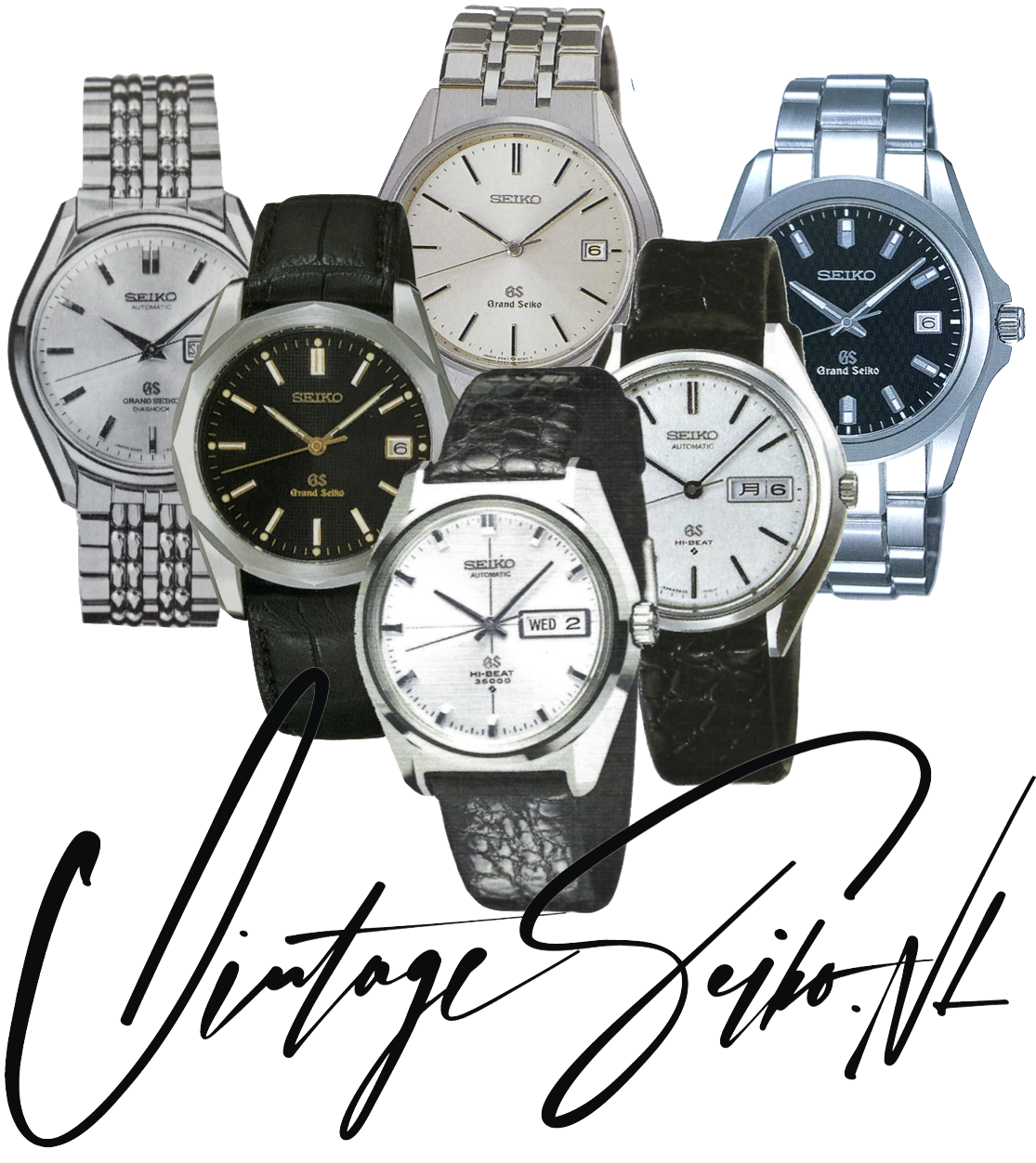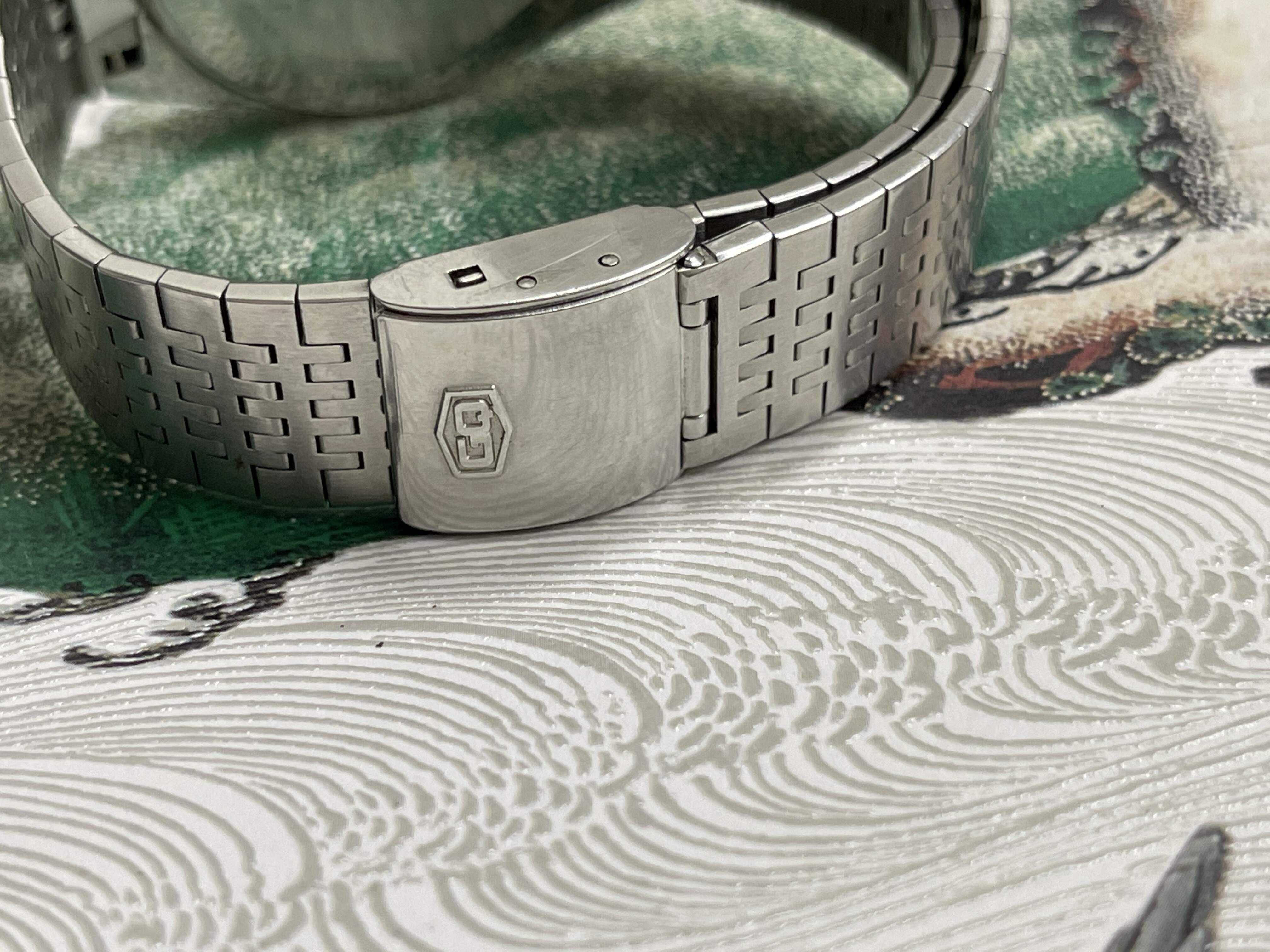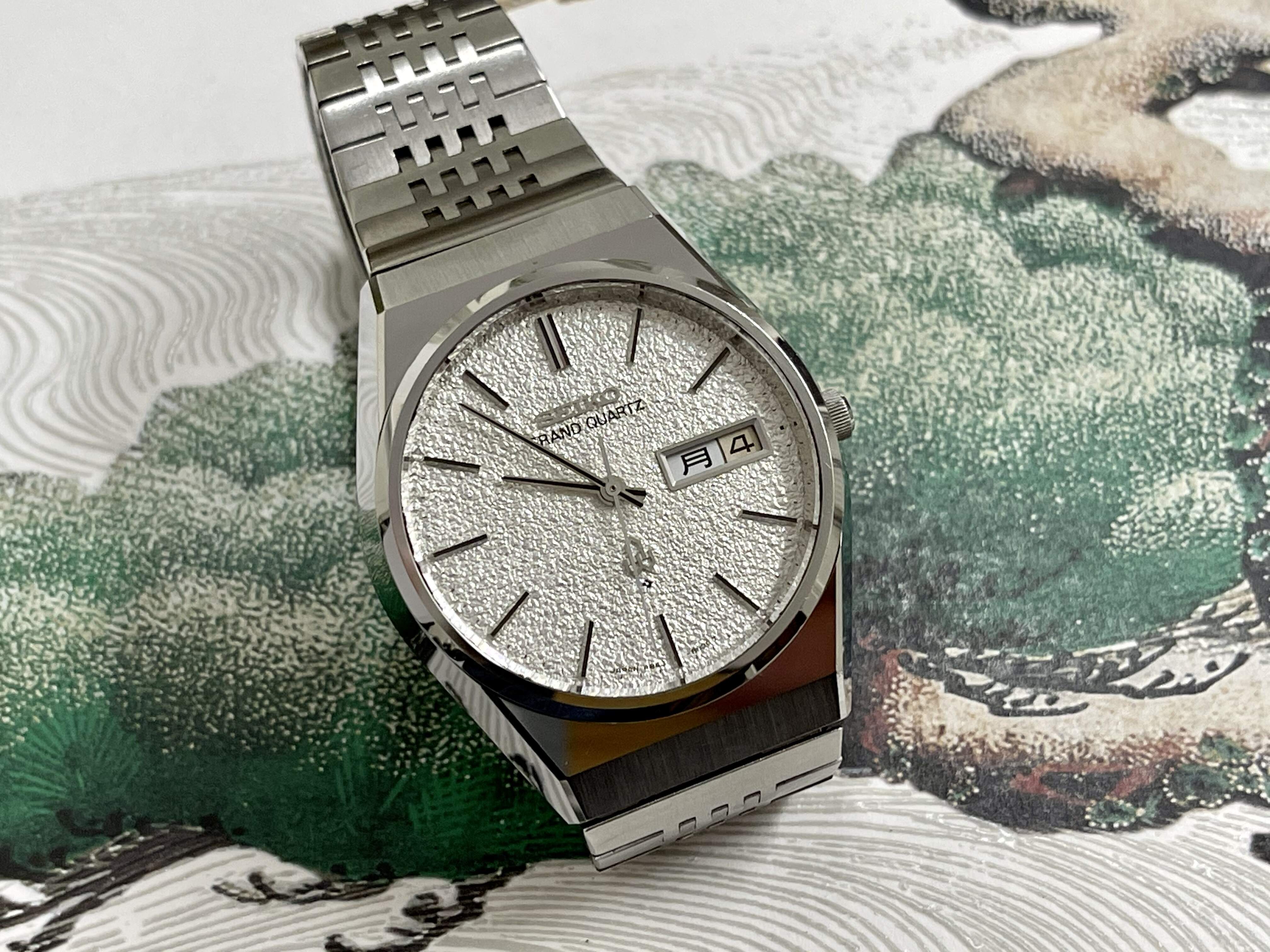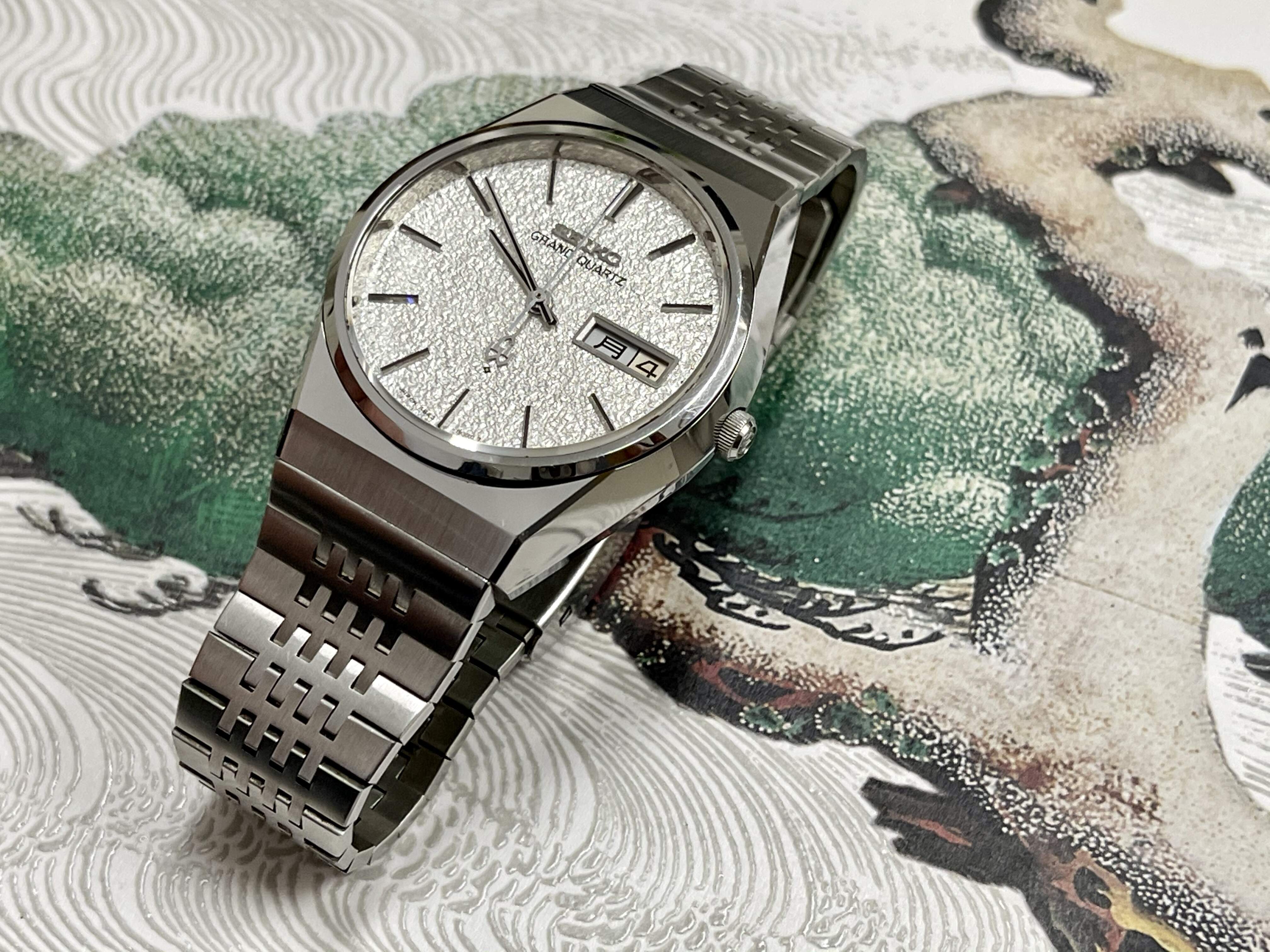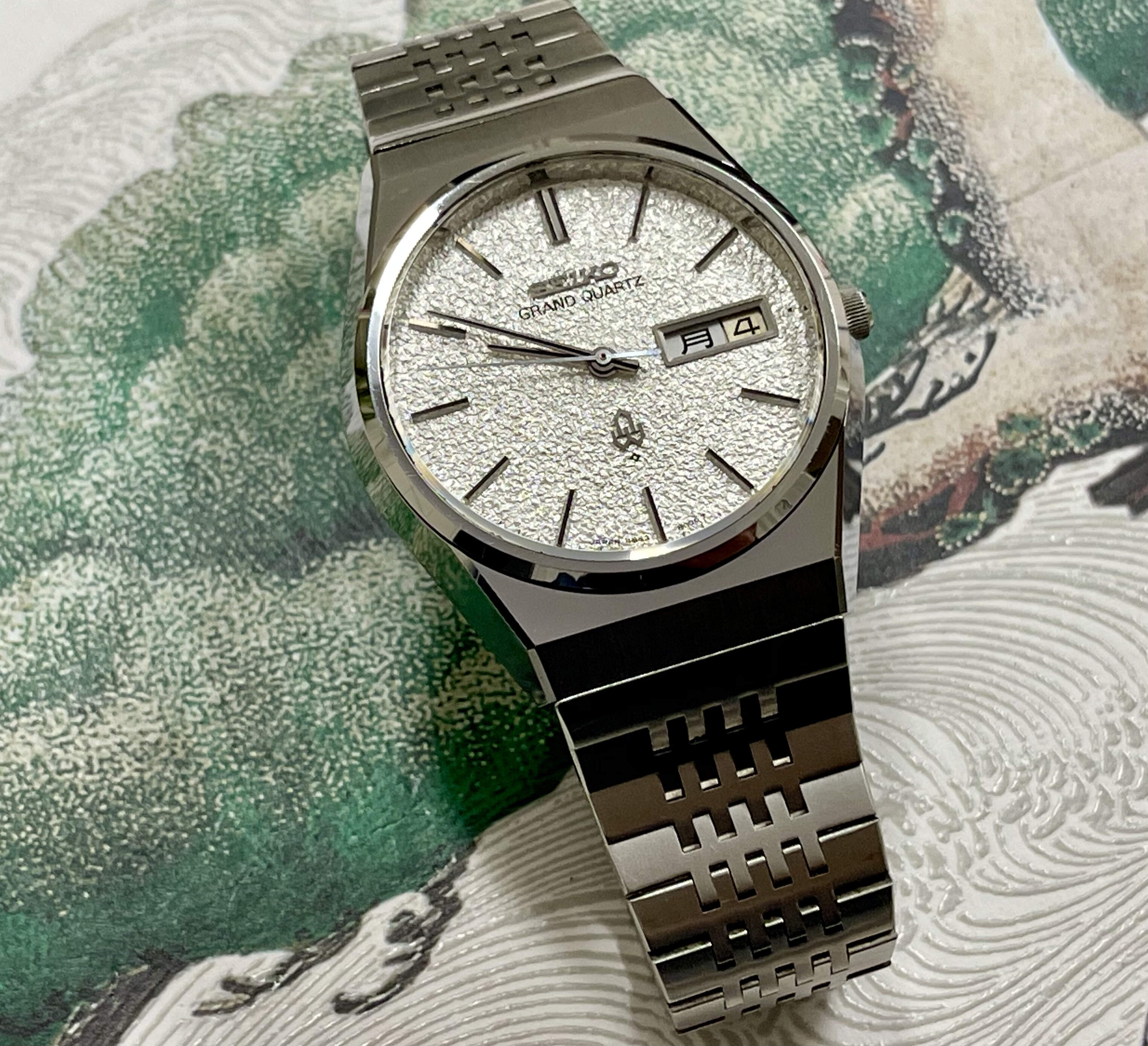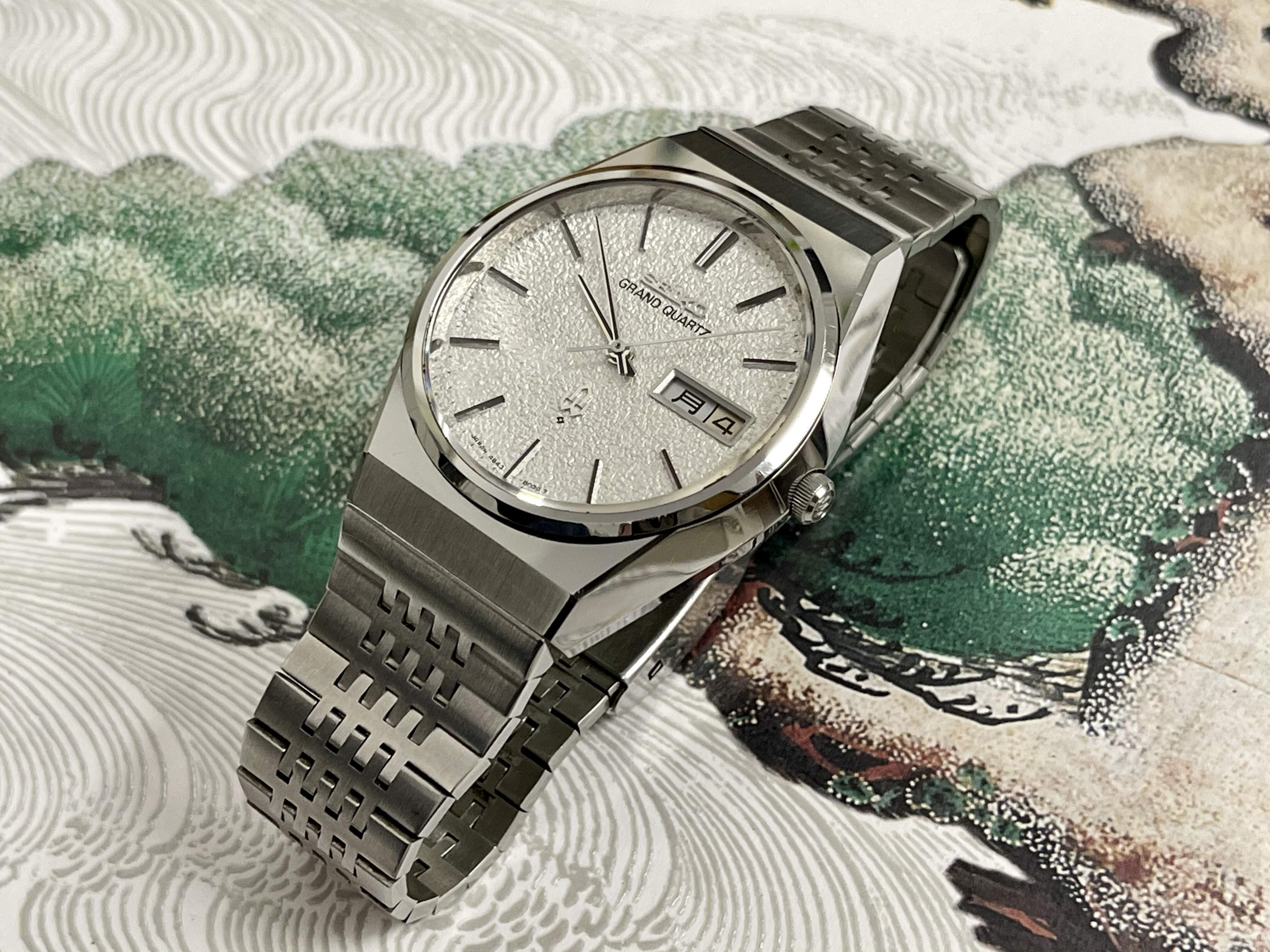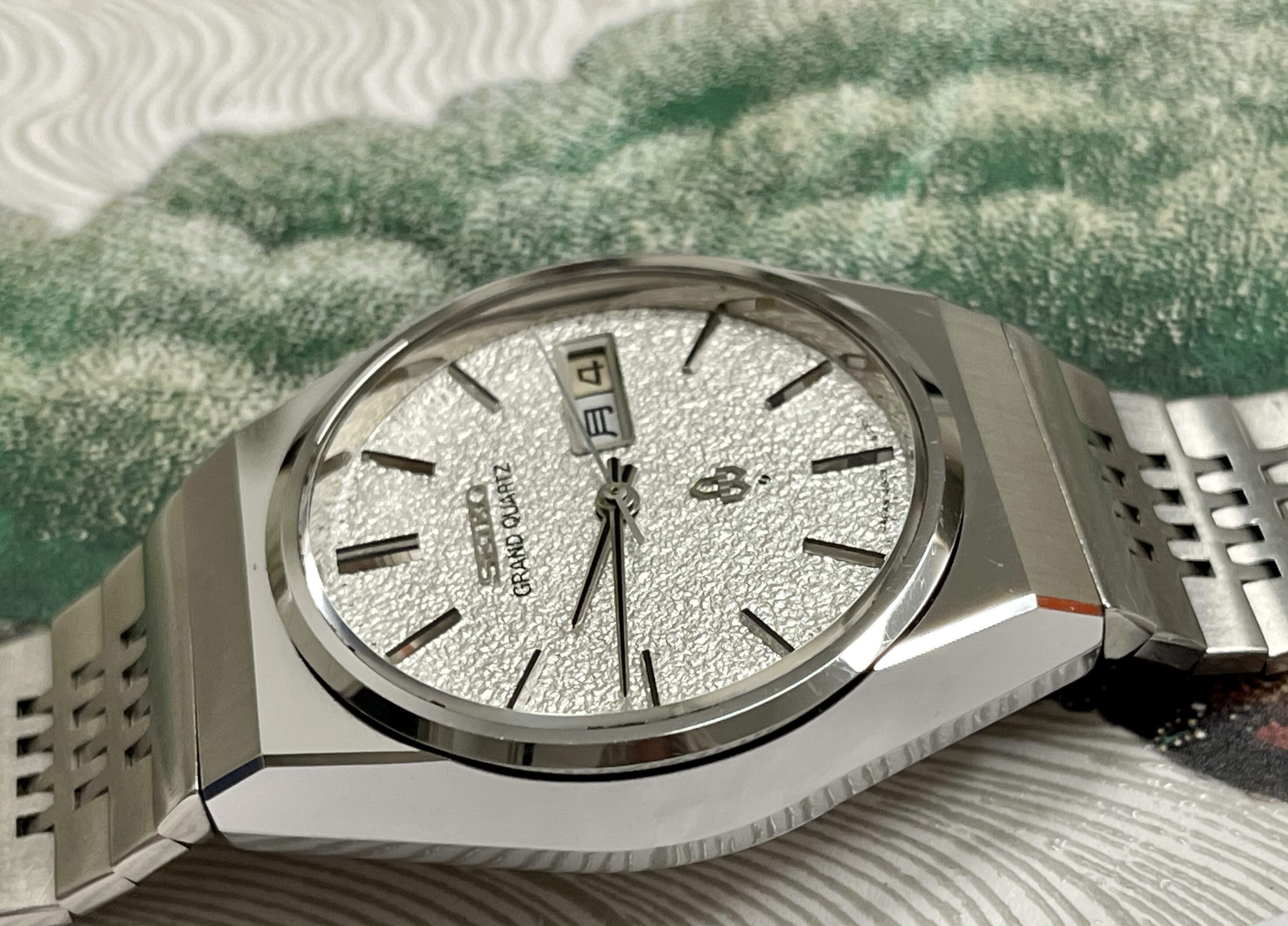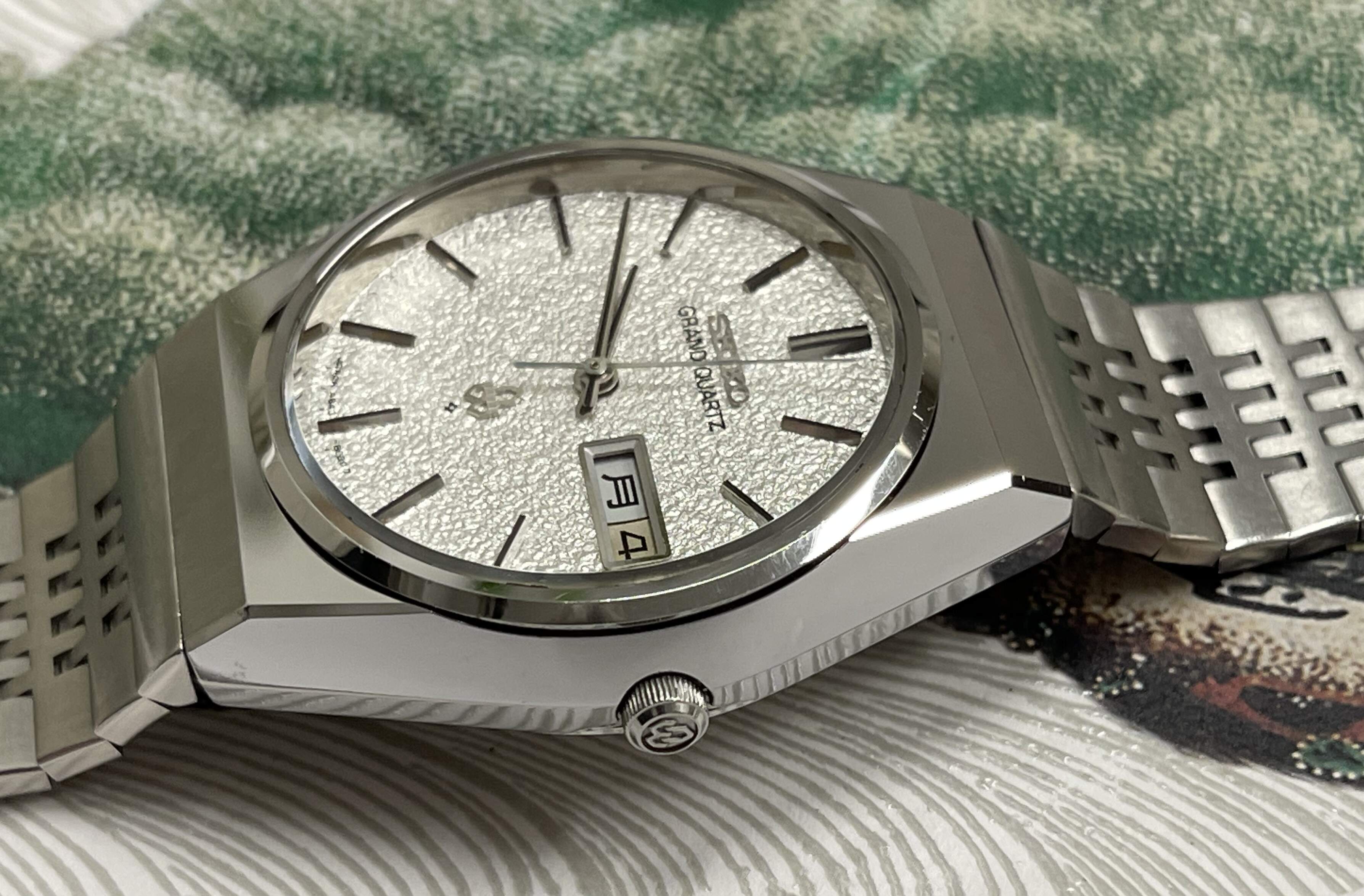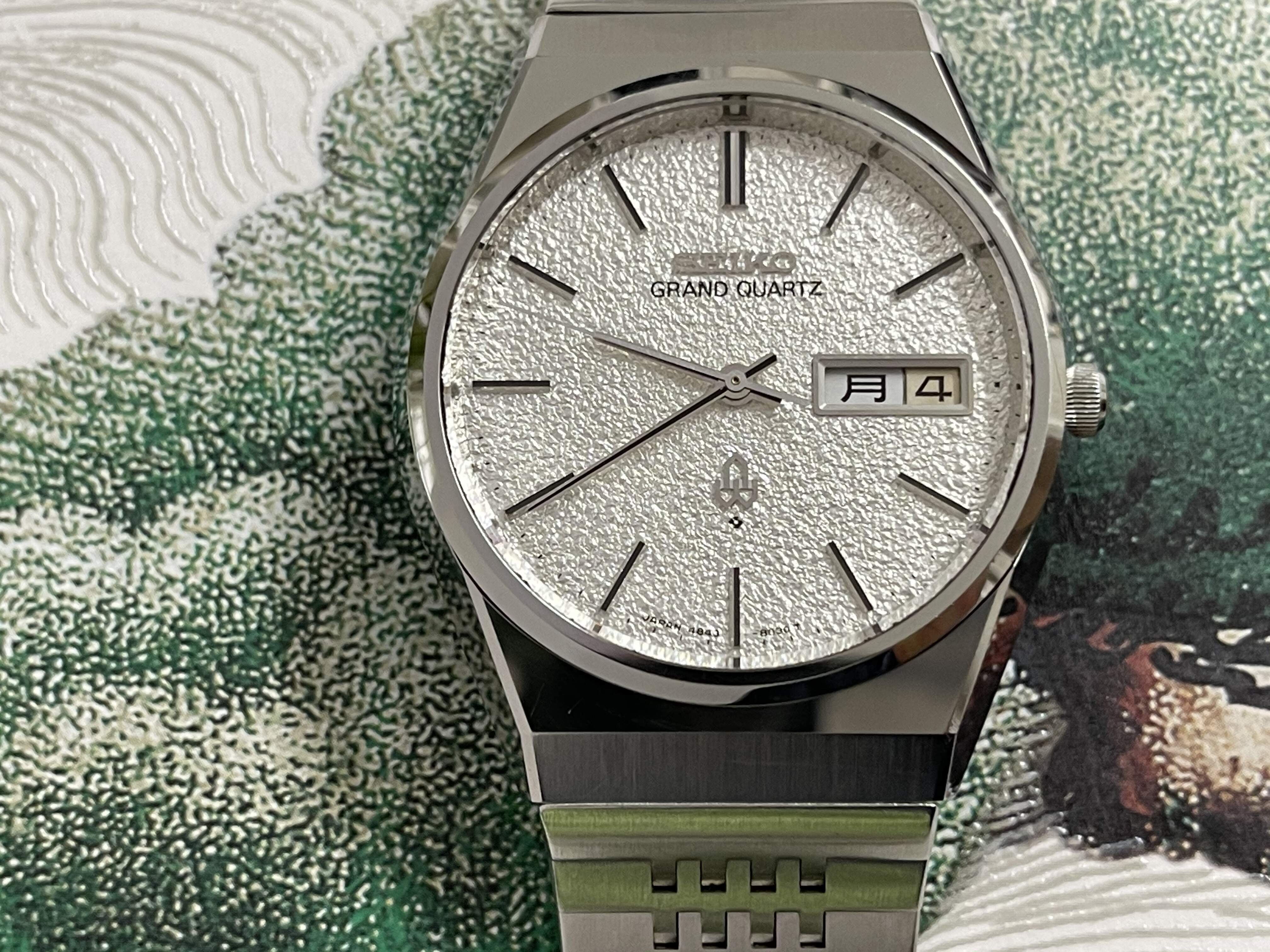
Seiko Grand Quartz 4843-8050 (Sold)
€ 575.00
Sold out
| About | Details | and then some |
|---|---|---|
| Manufacture | Seiko | Grand Quartz |
| Model reference | QNK050 | 4843-8050 |
| Movement | Quartz | |
| Caliber | 4843 | |
| Dial | Diamond Dust | |
| Case | 36x42x11mm | Hardened Steel |
| Lugs | 18mm | |
| Bracelet | XBB020 | 22cm |
| Crystal serial # | 300W88GA | Sapphire |
| Timegrapher | Accuracy: as rated | |
| Jewels | 9 | |
| Serial # | 60xxxx | Production: 1976-10 |
| Condition | Excellent | |
| Service | Not required | |
| Box & Papers | No box | No papers |
Diamond dust Seiko
Every watch nerd dreams of owning a piece hand-crafted by Seiko's top talent – and every watch nerd knows that Seiko always employed a couple of “old school” masters that since the late sixties have always been responsible for the best designed and more importantly, the best finished watches. The latter became truly essential when the brilliant Tanaka introduced his grammar of design, which required an insane level of Zaratsu finishing that could be seen as it were from the top Grand and King Seiko, right down to the mid-tier watches like the Lord-Matics
Seiko never could let go of that design philosophy and these days it can still be seen in the works of the Micro Artist Studio in Shiojiri, located in Japan's central Nagano region. They are the present day absolute elite unit, responsible for hand-crafting not only the incredible Eichi II, but also the Credor Minute Repeater and Sonnerie.
This is all great but not uniquely so, to the hard-core collector it is merely a confirmation of Seiko’s dial design genius and finishing techniques. We know this has been done before in the seventies, arguably Seiko’s golden age. More specifically, the Seiko Grand Quartz 4843-8100/8050, the 4840-8041 and the 9943-8020 (and some others) have this dial, arguably to an even more stunning degree of workmanship. The Zaratsu on the 8100/8020/8050 is very impressive, as it is done on hardened steel (labeled as HSS in the catalogues), Seiko was able to produce these cases when the design was particularly suited to this hardening and finishing process. It will gleam like glass – even after more than 40 years of service. Speaking about service, most of these the watches have run to specs all that time. (The Micro Artist Studio has quite a reputation to live up to.)
The concept of a timeless luxury watch however has not been taken fully into account as it used to be. A 43 mm watch is not really a universally wearable time-piece, and a Grand watch really should be just that! Seiko seems to have given in to fashionable design esthetics like a big crown – that you will almost never have to use anyway, right?
But this article is not about a critique of the 9R01-0AA0 Spring Drive, it is about its diamond dust dial precursor wiith its movement that has never been out to service, hardened steel with full-on Zaratsu and old school historically enriched charm. It is just that the new diamond dust dial Grand Seiko still has a ways to go.
The old "Diamond Dust" dial GQ, as stated, is a very solidly made quartz. The HSS was already made early on in the production run of the 48-base caliber, which spanned just four years, and continued in the late seventies with this 99GQ
In 1978 Seiko introduced the twin quartz 9943, ending all of the 48 caliber that year - but not the HSS Diamond Dust design. The 48 of the year before however remained a thicker and wider flaring watch (38x43x11mm!) and was more robust than its 994X descendant, which actually adhered to the same principles - it is after all a Tanaka design. Therefore, it already had a huge presence, apart from its very modern dimensions. This is also translated into the 9943 and the bracelet mentioned, which was uniquely designed for 1976/77 only and once again for the 1978 twin quartz. They are heavy, very tight bracelets - almost like those of the King Seiko Vanac of the day.
Describing this caliber watch reminds one that, for instance, the thermo-compensation is still excellent after all these years. Also, the incredible dial work is still impeccable, especially when the watch has never been breached but merely maintained. It is truly a high-end watch, easily comparable to modern Grand Seikos. Some might even argue that these "Grand" Seikos have never been surpassed in terms of historical significance or groundbreaking design. Tanaka design influences still deliver the best GS experience.
Internally, Grand Quartz had all sorts of technical innovations, the twin quartz 99GQ eventually being just one of them. But the GQ-caliber had great legibility due to Zaratsu finished minute markers. In my experience these quartzes are among the most accurate vintages; the twin quartzes like the 99 series mentioned have the specs to be sure, but after 40 years or so… build quality and robustness gain the upper hand. So all of the Grand Quartzes are grand indeed.
